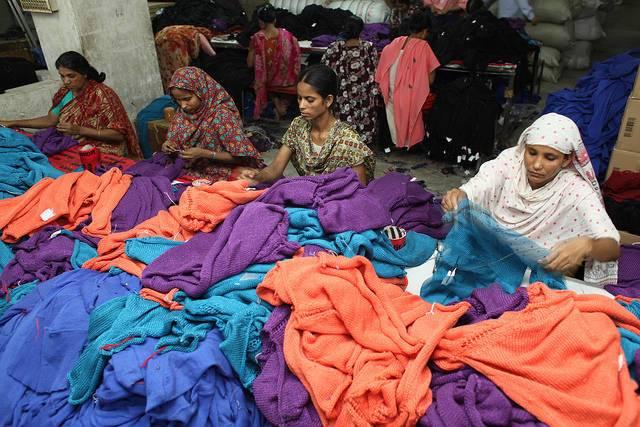
This week, the Interfaith Center on Corporate Responsibility (ICCR) announced it had reached an agreement with five multinationals who promised to promote ethical recruiting throughout their entire supply chains. The coalition of faith and values investors has made the case that in addition to the human rights violations that can result from fee-based recruitment, such practices can also put companies at risk of harming their brand reputation and losing the trust of their stakeholders.
The companies, Ford, General Motors, Hormel, Marriott and Michael Kors, told the ICCR that they would adopt “no-fees” recruitment policies, which advocacy groups for years have said are crucial in reducing problems such as bonded labor, the loss of identification documents such as passports and other labor rights violations.
These five companies’ shift in policy comes after a long “No Fees” campaign ICCR has led in partnership with NGOs and intergovernmental organizations.
Unethical labor recruiters, especially those who strive to bring workers cross-border for companies often at the farthest reaches of companies’ supply chains, have been notorious for charging as much as the equivalent of thousands of dollars to help desperate workers find employment. KnowTheChain, a coalition including Humanity United, Business & Human Rights Resource Center, Sustainalytics and Verité, is one example of NGOs urging multinationals to stamp out recruitment fees from their supply chains.
“Companies can make significant, lasting progress against human trafficking by setting a clear policy against charging fees for work and committing themselves to root out the practice in the recruitment and employment lifecycle, even buried within their supply chains,” wrote Shawn MacDonald, CEO of Verité, in a 2014 blog post.
The Institute for Human Rights and Business (IHRB) is another organization that has been at the forefront of the fight against recruitment fees. One industry in which this practice has led to many human rights and ethics problems is the global apparel sector, especially within Bangladesh. In a report issued earlier this decade, IHRB described how migrant workers desperate for better opportunities far from home often feel for “bait and switch” tactics employed by recruiters. The bait would be the promise of high wages, which would often be negated by hidden fees and high interest rates. Switches would often be a work contract vastly different from the one promised, threats of deportation and abuse on the job – not to mention pay far lower than promised.
But in a report issued late last year, KnowTheChain said only six major apparel companies have instituted a “no-fees” recruitment policy.
In addition to the apparel industry, the ICCR says other sectors at high risk of unethical recruitment practices include food and agriculture, automotive and hospitality.
In convincing more companies to bolster their supplier code of conduct and supply chain policies, the ICCR published a best practices guide on ethical hiring of migrant workers in May. Fundamentally, the report calls for the burden of employment costs to fall on companies, not individual workers. But companies can avoid finding themselves in the midst of controversy with wayward suppliers by working with their supply chain to adopt new hiring practices. These policies include direct recruitment, prohibiting practices such as the confiscation of travel documents, ethical hiring training programs and if necessary, the reimbursement of workers for any of recruitment fees they may have paid.
Image credit: NYU Stern Business & Human Rights/Flickr

Leon Kaye has written for 3p since 2010 and become executive editor in 2018. His previous work includes writing for the Guardian as well as other online and print publications. In addition, he's worked in sales executive roles within technology and financial research companies, as well as for a public relations firm, for which he consulted with one of the globe’s leading sustainability initiatives. Currently living in Central California, he’s traveled to 70-plus countries and has lived and worked in South Korea, the United Arab Emirates and Uruguay.
Leon’s an alum of Fresno State, the University of Maryland, Baltimore County and the University of Southern California's Marshall Business School. He enjoys traveling abroad as well as exploring California’s Central Coast and the Sierra Nevadas.














